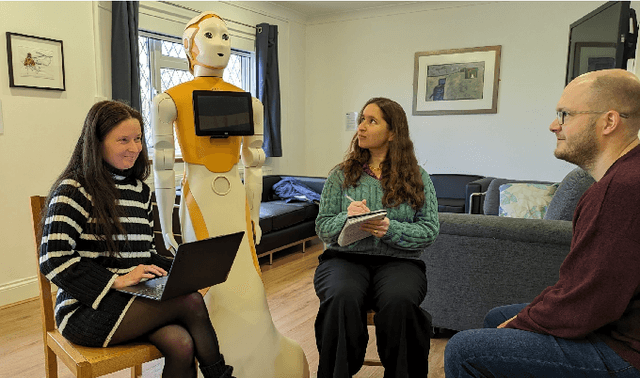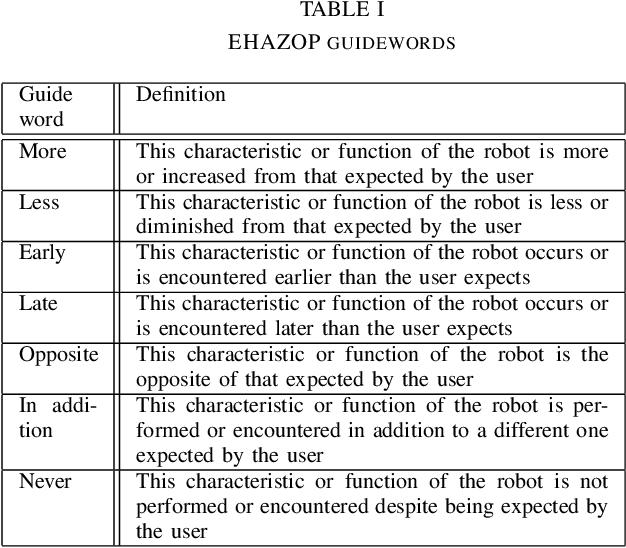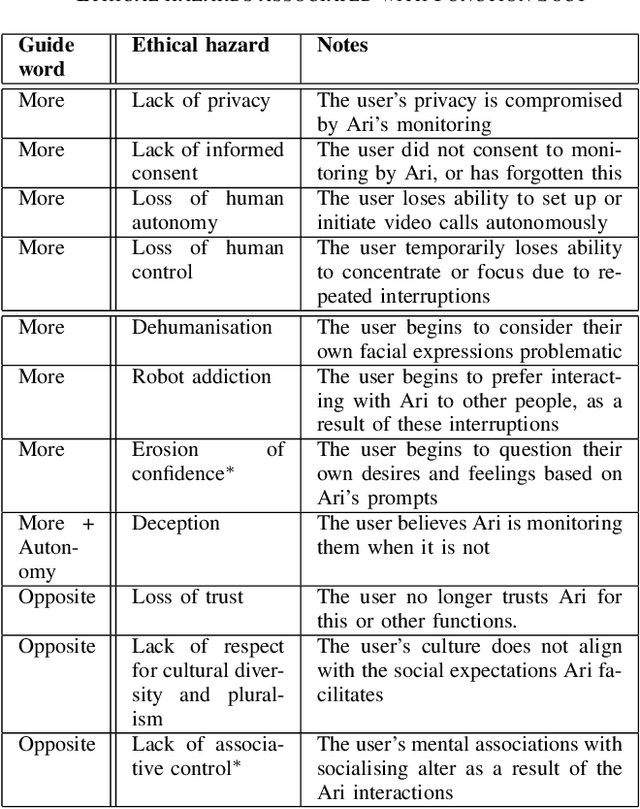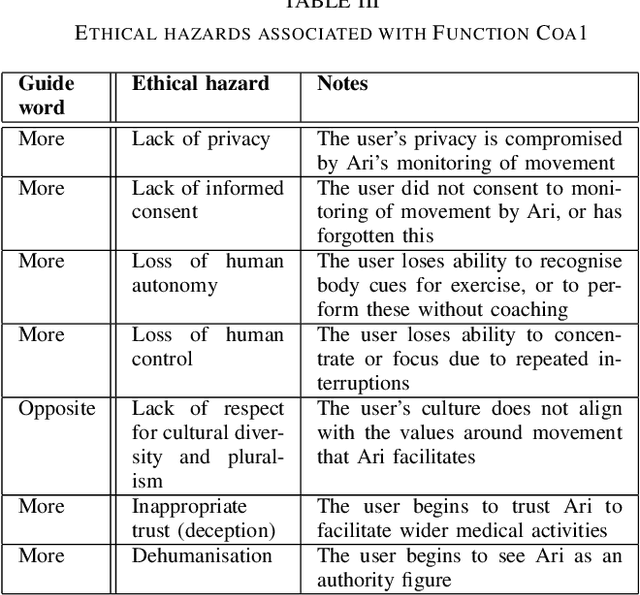Catherine Menon
EHAZOP: A Proof of Concept Ethical Hazard Analysis of an Assistive Robot
Jun 13, 2024



Abstract:The use of assistive robots in domestic environments can raise significant ethical concerns, from the risk of individual ethical harm to wider societal ethical impacts including culture flattening and compromise of human dignity. It is therefore essential to ensure that technological development of these robots is informed by robust and inclusive techniques for mitigating ethical concerns. This paper presents EHAZOP, a method for conducting an ethical hazard analysis on an assistive robot. EHAZOP draws upon collaborative, creative and structured processes originating within safety engineering, using these to identify ethical concerns associated with the operation of a given assistive robot. We present the results of a proof of concept study of EHAZOP, demonstrating the potential for this process to identify diverse ethical hazards in these systems.
Story-thinking, computational-thinking, programming and software engineering
Jun 30, 2022



Abstract:Working with stories and working with computations require very different modes of thought. We call the first mode "story-thinking" and the second "computational-thinking". The aim of this curiosity-driven paper is to explore the nature of these two modes of thinking, and to do so in relation to programming, including software engineering as programming-in-the-large. We suggest that story-thinking and computational-thinking may be understood as two ways of attending to the world, and that each both contributes and neglects the world, though in different ways and for different ends. We formulate two fundamental problems, i.e., the problem of "neglectful representations" and the problem of oppositional ways of thinking. We briefly suggest two ways in which these problems might be tackled and identify candidate hypotheses about the current state of the world, one assertion about a possible future state, and several research questions for future research.
 Add to Chrome
Add to Chrome Add to Firefox
Add to Firefox Add to Edge
Add to Edge